Boarding school students: ADHD FAQ’s
Is your child struggling with attention issues? Planning? Short-term  ? Perhaps he or she has been diagnoses with Executive Function Disorder (EFD) or Attention Deficit Disorder (ADHD).
? Perhaps he or she has been diagnoses with Executive Function Disorder (EFD) or Attention Deficit Disorder (ADHD).
First off, I will step onto my soapbox briefly
With all due respect to the DSM (Diagnostic and Statistical Manual of Mental Disorders), I don’t care for diagnoses. I think they have a place in an initial stage of understanding “what’s going on?” for a kiddo. ADHD and EFD diagnoses can be great “jumping off” points that inform a learning and emotional-wellbeing roadmap, as well as possible pharmaceutical or other interventions. But, I like to caution folks not to get wrapped up in labels and the lens that come with them. Many parents come to us with these diagnoses, but I always choose focus on the whole child, the strengths, weaknesses, and personality.
Stepping off my soap box now…
Becky and I have come up with frequently asked questions that parents pose with regard to boarding schools and students who may struggle with attentional or other executive functioning issues.
Please note that these boarding schools for ADHD FAQs and answers are written for a general audience and we never tire of addressing them. Every family and child is different. Please do not hesitate to contact us to ask us these or any other questions you may have.
Boarding school isn’t an easy decision, but it can be a fresh start for many students.
1) I know my child is smart, but the only feedback I ever hear from teachers is “he’s not working up to his potential”. Does that have anything to do with ADHD? They only see what he’s not doing and don’t see what he CAN do.
Students who struggle with attentional and organizational issues often suffer from chronic “not-living-up-to-potentialness.” These kids have somehow kept it together (some more than others) through elementary school, as nurturing teachers and hands-on parents are able to coach and carefully monitor students. However, as time goes on, school gets harder. Kids become pre-teens and teens who strongly prefer a hands-off approach. Teachers and parents –rightfully so in many cases– assume that many of these skills have already been acquired and students should be practicing them independently. As the “training wheels” come off and expectations increase in pre-teen years, it can become increasingly difficult for students to demonstrate they are “working to potential.”
2. What does “working to potential” have to do with ADHD and Executive Functioning Weaknesses?
Attention may wax and wane in the classroom, and holes in “input received” emerge. Lessons may not be fully understood, deadlines may not be “heard” and effectively processed. Assignments may be rushed or incomplete. Time management is often an area of difficulty, so the battle cry of “start planning earlier!” becomes increasingly familiar to students, teachers, and parents alike. Students may struggle with organization on any end of things– from losing the initial assignment, to remembering where they put a completed assignment. Many of these descriptions may sound familiar if you are a parent.
And don’t get me started on social-emotional wellness. With every mishap (from “forgotten” pencils to final exams), a child’s confidence and sense of efficacy takes a bruise. Similarly, social cues with friends can be missed and peer relationships strained. Not all children experience the same struggles, but the grim list does goes on.
The trick of all this is to get your child into a setting where their brains– their raw “potential”– can be maximized by putting into place a cohesive set of targeted interventions designed to build up all the identified areas of weakness. This plan ideally should be able to address difficulties across domains– e.g. school, home, even social needs. One big reason that families elect to send their child to boarding school is that such school/ home plans can be synchronized. That is, the natural structure of boarding school facilitates seamless support. For example, students will attend a supervised study hall wherein teachers can gently remind students about that paper due in two weeks. Students will meet with personal advisors and mentors to follow up weekly (or more frequently) on whether Johnny or Janey attended that math study group, or how the binder is looking. Teachers, advisors, and mentors are also intimately involved in campus life. Mr. Smith may observe Johnny having a problem with peers in Chemistry, and can gently talk to Johnny later when he’s on duty as a dorm parent. Given my background in school psychology, for students on my caseload, I also frequently check in with schools to see how plans are being implemented and offer support.
Have another question? Comment here or email me at [email protected]. Thanks for reading!













